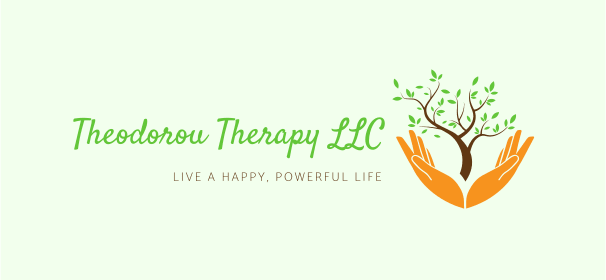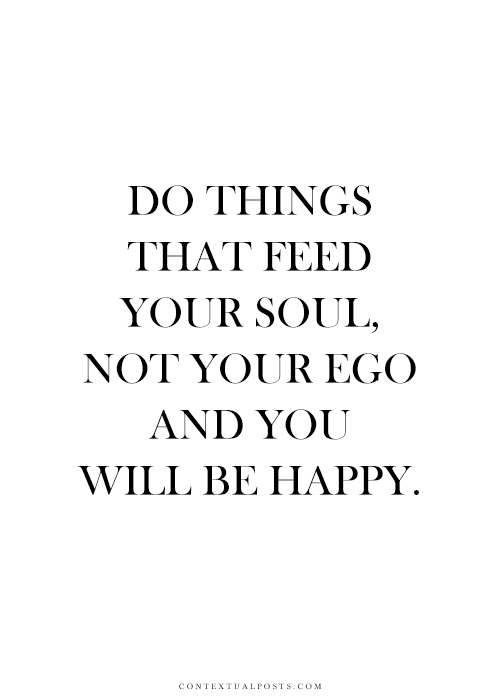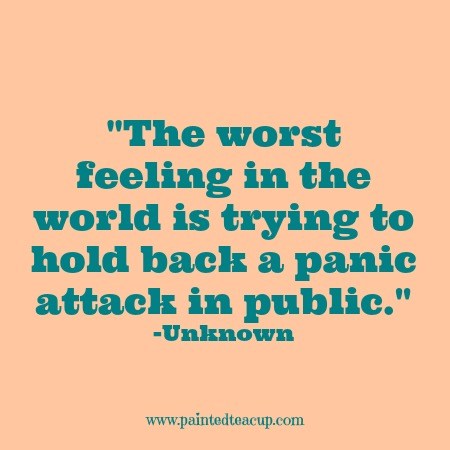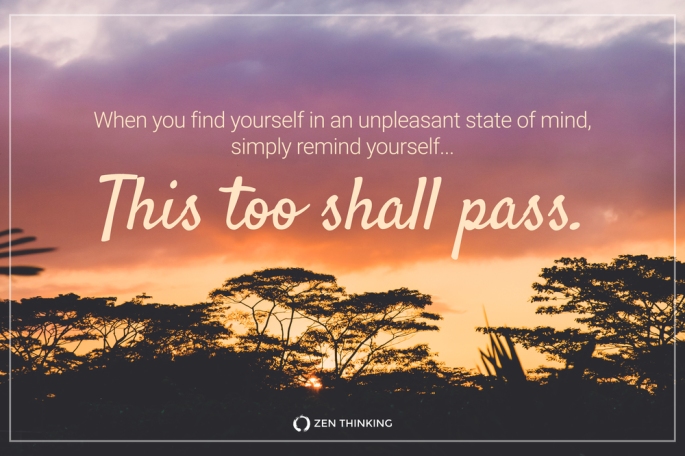On this journey through life, we are different people at various points in our journey. Surely you are not the same person at 48 that you were at 18.

Yet the people in our lives often view us as who we were when they met us. More often than not it will be a struggle for them to shift their perception of you. Once they view you a certain way, regardless of the changes and progress you make in your life, it may be a challenge for them to take you out of the “box” they put you in.
This is why if you ask five people to describe someone, you will likely get five extremely varied answers. We meet people at different points in time impacting our perception of the individual.
Even our own self-concept may be reflective of a point in time that no long holds true today. Ask yourself when is the last time you took stock of who you are TODAY not who you were years ago? Do you still view yourself as an extrovert because growing up you liked to go out and socialize but now you spend your weekends at home on the couch dreading the mere thought of going to a party? Do you consider yourself a career driven person but have not been in the workforce in five, ten, fifteen years? Do you view yourself as athletic but have not been in shape since your college years? Often we do not update our self-concept as we evolve through life.
There is no right or wrong here. But at different stages of our life, to an extent, our identity shifts. You are a different “you” as a child vs. college student vs. a young professional vs. a person balancing career and family vs. someone who is retired. Yet oftentimes we hold onto an identity that is no longer valid which can in turn create conflict within ourselves and with the outside world.
Our self-concepts are not always perfectly aligned with reality. Our perceptions of others are not either. While we all tend to distort reality to a certain degree, congruence occurs when self-concept is fairly well aligned with reality.
Try to reflect on the following three questions:
- Do you think your view of yourself is how other people view you?
- Can you think of someone you and a friend view completely differently?
- Do you believe most people are aware of how others perceive them?
Too many people live on auto pilot. Many of us do not reflect on our beliefs of ourselves, others, and life in general to see if they are still relevant or hold true to this day.
People use labeling as a tool to resolve the complexity of their environments. It is easier to put people in categories than take the time to analyze the complexities of the individual (complexities which we all have). It is simpler and easier to label and categorize. The same can hold true for the views we hold of ourselves.
Not only do we tend to stereotype people, but once we label someone, we fight like hell to keep them in that category. Even if the face of evidence to the contrary. This helps to mitigate our cognitive dissonance. (Cognitive dissonance refers to a situation involving conflicting attitudes, beliefs or behaviors. This produces a feeling of mental discomfort leading to an alteration in one of the attitudes, beliefs or behaviors to reduce the discomfort and restore balance).
Ironically enough as clinicians we HAVE to use diagnostic labels to interpret clients’ behavior to bill insurance companies. I am not a big fan of such protocol but it is a requirement for insurance companies to cover services. I feel people are so much more than the categories we put them in.
Yet in private practice we are able to change the diagnostic label as a client progresses through treatment. In day-to-day life, it seems our labels tend to be more rigid and fixed.
We label people: talkative, outgoing, shy, kind, rude, evil, sweet, smart, dumb, hardworking, successful, not successful, rich, poor, the list goes on and on.
More often than not I find people do not like to change their long-held views or labels. Of themselves OR others. Once they made up their mind on WHO someone is–it is what it is.
Even if they experience discomfort in the face of evidence which is contrary to their preconceived views, they will work hard to twist the truth and to justify their faulty perceptions. To reduce the discomfort, they will often use a myriad of defense mechanism (ex. denial, projection, rationalization) to mitigate any cognitive dissonance between themselves and the target of their label/judgement.
We also do the same with the view we hold of ourselves. And of life in general (we see this play out all the time in political discussions).
Not everyone, but many people seem to struggle with changing how they view a person (or oneself) once their mind has formed an opinion.
It is like our mind is a file cabinet. When we see someone we unconsciously pull the file on that person. The problem is we may have not updated our files in 5, 10, 15, 20 years or more.
For instance, one woman I know has repeatedly pointed out to me a mistake a person had made in college. The thing is the woman in question is well into her FORTIES. Thus this person is judging someone based on a mistake made over 20 years ago. The person was using this mistake, from twenty years ago, as a reflection on this person’s present day character. In reality, this woman was a totally different person in the here and now. This type of type casting is reflective on this rigid, inflexible categorizing, people have a tendency to indulge in. Perhaps you have your own examples coming to mind.
The thing you may notice is that people like to stereotype you. They are going to do all in their power to put you in a box based on how you look, where you work, and where you live particularly at the point in time they met you. This allows them to mentally file you away alongside the thousands of other boxes consuming their mental files.
I have seen this commonly occur in families. It’s all an inside job. The only way we’re able to look at the world is through our own unique lens.
The truth is, all of us are capable real and meaningful change, but we often criticize those who display it. For some, having people “figured out” is preferable to actually figuring them out.
People do not want to take the time to reevaluate a person or their relationship to said person based on the here and now. What compels us to define ourselves and others by often narrow parameters, putting us into categories? People are busy and people are lazy. It is convenient. Labels enable people to make what they believe to be useful generalization. We then use these labels to justify our own behavior in turn.
This can in turn make us feel we know what is best for other people. This is a side effect of our short-sighted judgments. This has been done to me and I know I have done this from time to time with others. It’s one thing if someone’s actions and behavior are directed at us personally, but when those decisions aren’t, intervening, will bring about anger and frustration. We use our labels and generalizations to rationalize our actions towards others.
Labels have a way of dehumanizing people. It is okay to have different values. Life is a lot more complex than many of us are willing to acknowledge.
Yet when we think we know what’s best for someone’s else life, what we are essentially doing is failing to recognize we are all unique people with different values. Keeping people in a box helps us to feel in control. Thus instead of accepting someone as they are NOW, we fight to view them as something we are comfortable with. When we view a person as who they were ten, fifteen, twenty years ago, it can be hard to connect with them if we are not able to communicate with who they are in the here and now.
Do you see the issues that can arise with this type of thinking? Of stereotyping someone and imposing your opinion of what’s best? This type of thinking and behavior plays out often in our society including our political landscape.
Perhaps you have been there before. Someone hurts you and you decide they did it because they’re an evil or bad person. You disregard all evidence to the contrary. When someone else speaks kindly of them, you assume that person does not know the “real” them like you do. Or someone says something that threatens a belief you hold dear, so you decide they’re wrong. Maybe you view yourself a certain way and when someone says something that contradicts this view, you attack them.
We fight fiercely to hold onto our beliefs. We push hard to get people to act in a way we deem best. At the core, this is about feeling secure and comfortable.
Yet being emotionally and mentally healthy means not labeling other people and putting them in boxes that we file away. It means giving ourselves and others the freedom to change.
We are not meant to be put in boxes. As people, we are always growing, changing, and evolving (hopefully that is).
In a way if you are not growing, you are dying.
When we look around at other people, we tend to be naturally drawn to people like us. Conversely, we may be repelled by certain types of people who seem very unlike us. This is why change can feel so threatening. Again, we see this play out in the political realm. But for our own peace of mind we need to begin to see most people do not fit neatly into categories. Life is messy. Things change. People are constantly in flux. The world is constantly moving forward–whether we are on board or not.
As it relates to ourselves, progress is important to be being happy. As humans if we are not growing more often than not we are not going to feel fulfilled. Think of people who have not changed any aspect of their life in five, ten, fifteen, twenty years (maybe you are thinking of yourself). These people in all likelihood lack a vibrancy to them. The thing is growth has a sense of aliveness to it. What makes us feel alive is progress.
The time has come for us to start thinking OUTSIDE the box instead of forcing others (and ourselves) into a box. The time has come to begin making progress in our own lives and allowing others to evolve. Let us not continue to box ourselves or others in.

To schedule a counseling session with me (AND if you are a reader who lives in New Jersey):
https://anewcounselingservices.com/erin-theodorou%2Cm-ed-%2C-lpc
Erin Doyle Theodorou, M.Ed, LPC, NCC
Anew Counseling Services LLC
617 Oradell Avenue, Suite 3, Oradell, New Jersey, 07649
(551) 795-3822
etheodorou@anewcounselingservices.com






